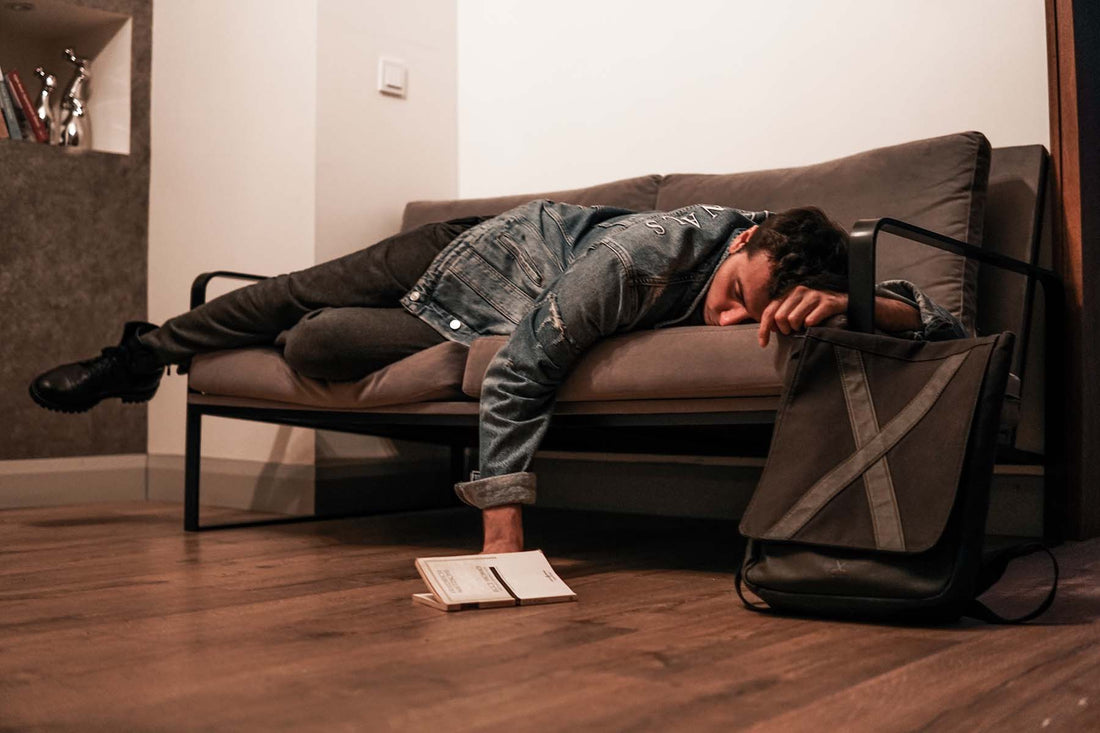
How Does Alcohol Affect sleep?
Share
Author: Nick Nowak, PharmD, BCPS
Introduction to Alcohol and Sleep
Alcohol, a commonly consumed substance in various social settings, has long been associated with its impact on sleep patterns and quality. Sleep, on the other hand, is vital for overall health and well-being, playing a crucial role in various physiological and cognitive functions.
How Does Alcohol Impact Sleep?
Alcohol's influence on sleep is complex and multifaceted. While it may initially induce drowsiness and facilitate falling asleep, its effects on sleep architecture become more apparent as the night progresses. Research indicates that alcohol disrupts the normal progression of sleep stages, leading to fragmented and less restorative sleep.
Alcohol's Influence on Sleep Quality
One of the primary ways alcohol affects sleep is by altering the balance of sleep stages, particularly rapid eye movement (REM) sleep. REM sleep, essential for cognitive function and emotional regulation, is often reduced in individuals who consume alcohol before bedtime. Additionally, alcohol can cause sleep disturbances, such as frequent awakenings throughout the night.
Biological Mechanisms Behind Alcohol's Effect on Sleep
The impact of alcohol on sleep is mediated by various biological mechanisms. Alcohol alters neurotransmitter activity in the brain, affecting the release of chemicals involved in sleep regulation. Furthermore, it disrupts hormonal balance, interfering with the body's natural sleep-wake cycle. These changes contribute to the disturbances observed in alcohol-induced sleep.
Individual Variations in Response to Alcohol and Sleep
Not everyone responds to alcohol's effects on sleep in the same way. Factors such as gender, age, and underlying sleep disorders can influence how individuals react to alcohol consumption. For example, women may be more susceptible to alcohol's sleep-disrupting effects compared to men, while older adults may experience greater disturbances in sleep architecture.
Strategies for Managing Alcohol's Impact on Sleep
To mitigate the negative effects of alcohol on sleep, individuals can adopt various strategies. Limiting alcohol consumption, particularly in the hours leading up to bedtime, can help minimize its disruptive effects on sleep. Establishing a consistent bedtime routine and creating a sleep-friendly environment can also promote better sleep hygiene. In cases where alcohol-related sleep disturbances persist, seeking professional help from healthcare providers or sleep specialists may be beneficial.
Conclusion
In conclusion, alcohol exerts a significant influence on sleep patterns and quality. While it may initially induce feelings of relaxation and drowsiness, alcohol ultimately disrupts the normal sleep cycle, leading to fragmented and less restorative sleep. Prioritizing healthy sleep habits and limiting alcohol consumption are essential steps towards ensuring a good night's rest and overall well-being.
FAQs
-
Can a glass of wine before bed help me sleep better? While alcohol may initially promote drowsiness, it can disrupt sleep patterns later in the night, leading to poorer overall sleep quality.
-
How long does it take for alcohol to affect sleep? Alcohol's impact on sleep can vary depending on factors such as the amount consumed and individual tolerance levels. However, its effects are typically observed within the first few hours after consumption.
-
Does alcohol worsen sleep disorders like insomnia? Yes, alcohol can exacerbate sleep disorders such as insomnia by disrupting sleep architecture and increasing the likelihood of nighttime awakenings.
-
Are there any alternative beverages that promote better sleep? Opting for non-alcoholic beverages such as herbal teas or warm milk may be more conducive to quality sleep without the disruptive effects of alcohol.
-
Is it safe to use alcohol as a sleep aid? Using alcohol as a sleep aid is not recommended due to its potential for addiction and adverse effects on sleep quality and overall health.
//
About the Author: Nick Nowak is a Doctor of Pharmacy (PharmD) and Board Certified Pharmacotherapy Specialist (BCPS. Nick studied at the University of Health Sciences and Pharmacy in St. Louis, and led clinical inpatient teams for the United States Air Force.
Please note: Intended for educational and informative purposes only and not intended to serve as medical or professional advice. For medical attention or advice you should consult your physician or other health care professional.
